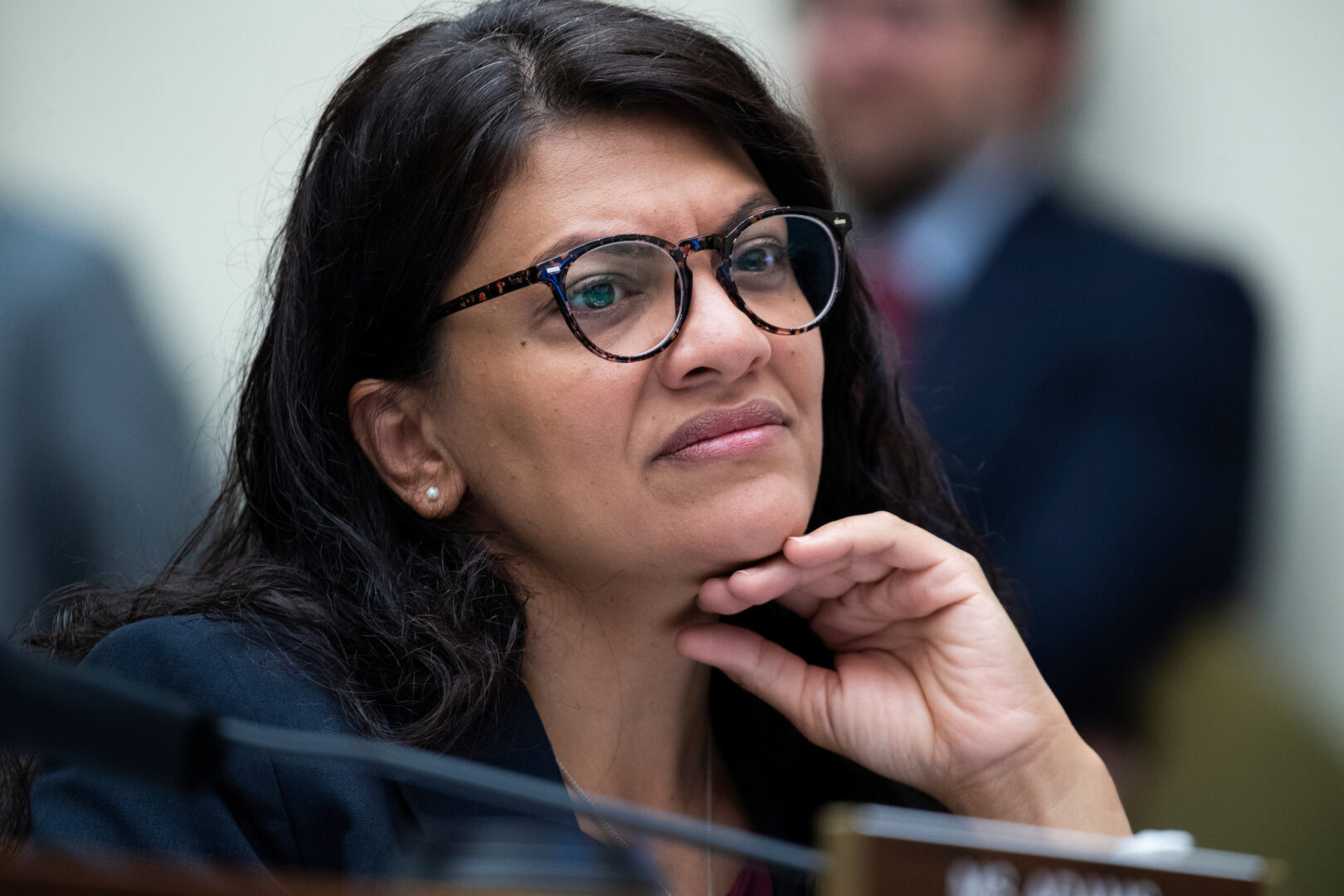Controversy Erupts: US House Denounces Palestinian Chant ‘From the River to the Sea’ as Anti-Semitic As Columbia Students Arrested
AMT considers the chant's significance as Rep. Rashida Tlaib votes against the resolution, calling it ‘an aspirational call for freedom’ and ‘not death’

As the ongoing siege of Gaza continues, the chant 'From the river to the sea, Palestine will be free' which for many embodies Palestinian aspirations for freedom, is defiantly growing stronger.
This is despite the US House recently passing a resolution denouncing the popular chant as "antisemitic," further fueling unease among Palestinians and their supporters worldwide.
Popular amongst many students, the move to stigmatize the chant comes as over 100 anti-Israel protestors at Colombia University in NY were today arrested, further repressing the right of free speech on the campus.
The resolution passed by lawmakers asserted that the slogan aims to undermine the right to self-determination of Jewish people and advocates for their expulsion from their ancestral land.

However, the Houses' only Palestinian representative, Congresswoman Rashida Tlaib's (D-Mich.) voted against the five-page resolution insisting the phrase is ‘an aspirational call for freedom’ and ‘not death.’
She was censured by the House censure last November, disciplinary action prompted by her sharing a video on social media platform X, showcasing protesters chanting the same phrase, and for accusing President Biden of supporting the genocide of the Palestinian people.
“From the river to the sea is an aspirational call for freedom, human rights, and peaceful coexistence, not death, destruction, or hate. My work and advocacy is always centered in justice and dignity for all people no matter faith or ethnicity,” she wrote.
Despite Tlaib's portrayal of the phrase as referring to an independent Palestinian state, critics, including lawmakers and supporters of Israel, argue that this explicitly advocates for the elimination of the state of Israel.
 Rep. Gregory Meeks (D-N.Y.), the ranking member of the House Foreign Affairs Committee, saw the resolution as an apparent strategy to create division within the Democratic Party. Despite his reservations, he felt compelled to support it due to his belief that the slogan carries antisemitic connotations.
Rep. Gregory Meeks (D-N.Y.), the ranking member of the House Foreign Affairs Committee, saw the resolution as an apparent strategy to create division within the Democratic Party. Despite his reservations, he felt compelled to support it due to his belief that the slogan carries antisemitic connotations.
“If you consider the geographic area of the Jordan River and the Mediterranean Sea to be exclusively Palestine, you are taking the Jewish state of Israel off the map,” Meeks said.
 The United Kingdom's Labour Party infamously suspended Member of Parliament Andy McDonald for employing the phrase "between the river and the sea" during a speech at a pro-Palestinian rally.
The United Kingdom's Labour Party infamously suspended Member of Parliament Andy McDonald for employing the phrase "between the river and the sea" during a speech at a pro-Palestinian rally.
In November, former Home Secretary Suella Braverman characterized pro-Palestinian demonstrations as "hate marches" and cautioned that the slogan should be viewed as a sign of a violent intent to eradicate Israel.
Reportedly, the Football Association in the UK has also prohibited players from using the slogan on their personal social media accounts.
Uncovering the Origins of the Chant
To both Palestinian and Israeli observers, the meaning of the slogan rests heavily on differing interpretations of the term "free."
Historians, scholars, and advocates who examine and utilize the phrase see its diverse meanings throughout the Palestinian struggle. Elliott Colla, a professor of Arabic and Islamic Studies at Georgetown University, suggests that the phrase, as it is recognized today, emerged during the era of the first intifada and the Oslo Accords in the 1990s. However, alternate sources trace its roots back to the 1960s and the inception of the Palestinian nationalist movement.
“The first thing to know is that it does have something to do with the history of partition. So it is articulating an image of historic Palestine undivided and unpartitioned” within the Palestinian community, Colla said. “That could be aspirational — this is a dream, all of Palestine” that is not always tied to a specific political outcome.
According to Nimer Sultany, a lecturer in law at the School of Oriental and African Studies (SOAS) in London, the adjective in the phrase conveys "the necessity of equality for all residents of historic Palestine." Here, ‘equality’ denotes the long-standing denial of Palestinians' right to self-determination, which traces back to Britain's endorsement of a Jewish national homeland in Palestine via the Balfour Declaration of 1917.
However, proponents of Israel argue that the slogan has a troubling implication. "For Jewish Israelis, this phrase implies the creation of a singular Palestine between the Jordan River and the Mediterranean, without a Jewish state, leaving the status of Jews within this entity uncertain," explains Yehudah Mirsky, a rabbi based in Jerusalem and professor of Near Eastern and Judaic Studies at Brandeis University.
Mirsky contends that individuals chanting the slogan are "supporters of Hamas," yet Sultany counters this view. He maintains that pro-Palestinian protesters should not be equated with supporters of the armed group, who constituted the minority among the millions of people around the world who are supporting the Palestinian cause.
